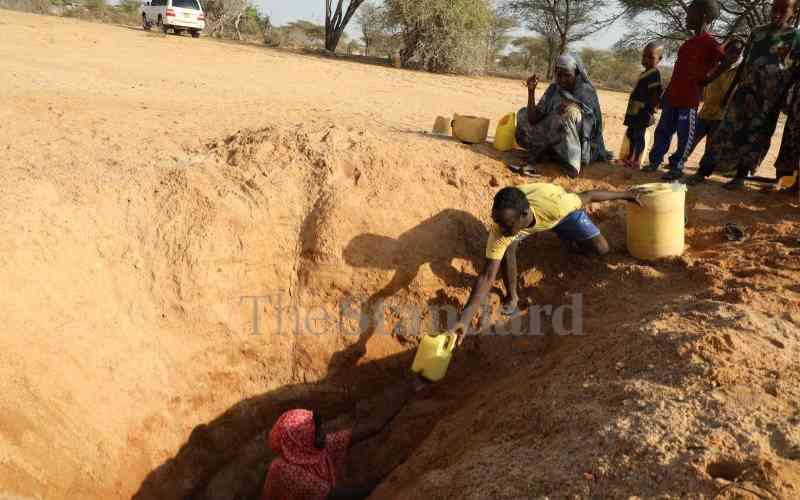×
The Standard e-Paper
Smart Minds Choose Us

Kenya is facing a severe drought, the worst to hit our country in the past 40 years. An estimated six million people in 32 counties are facing acute food insecurity and/or acute malnutrition.
This includes 4.4 million people in the 23 arid and semi-arid lands (ASAL) counties and 0.5 million in nine non-ASAL counties. In addition, 970,000 children below five years and 142,000 pregnant and breastfeeding mothers require urgent life-saving treatment for malnutrition.